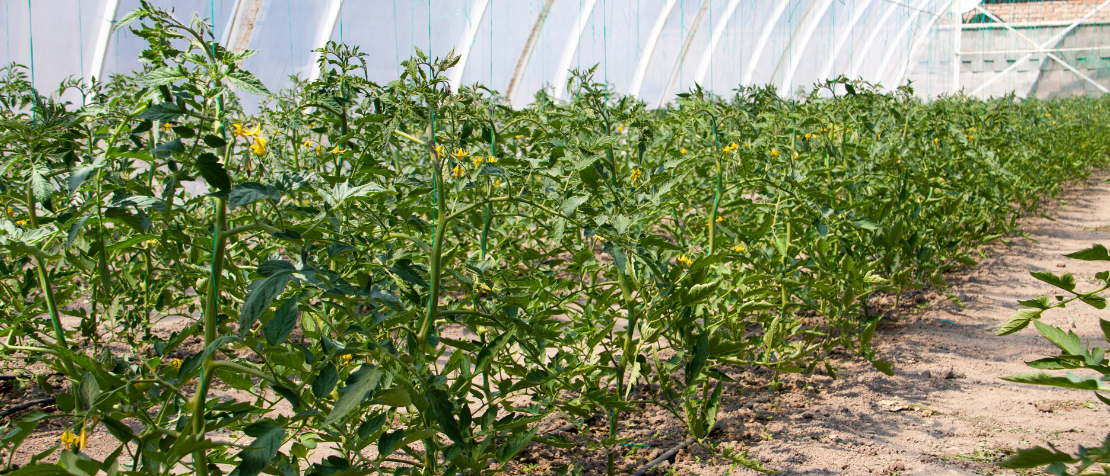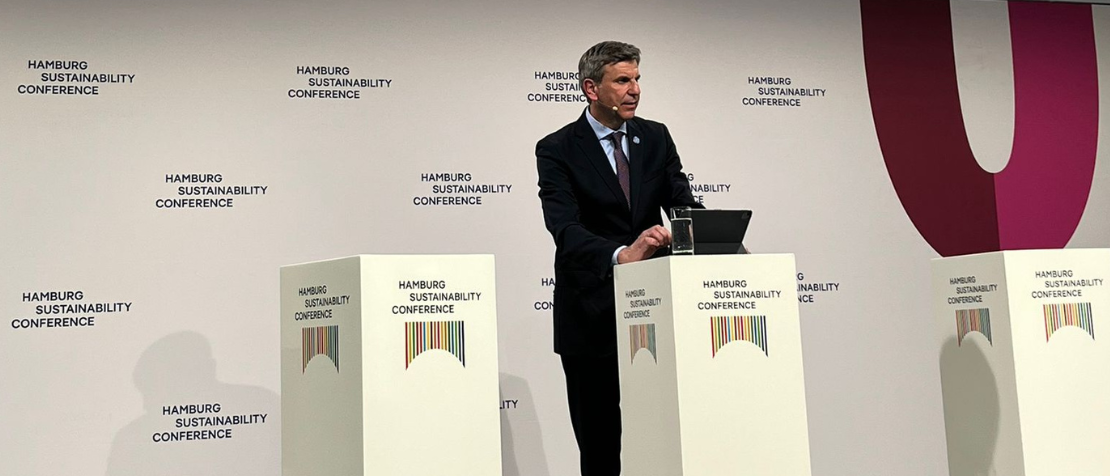FAO urges efficient and sustainable water management at the Hamburg Sustainability Conference

©FAO/Didar Salimbayev
Water security is key for ensuring food security and countries can rely on the support of the Food and Agriculture Organization of the United Nations (FAO) to improve water management at the farm, national, and transboundary levels, as well as to facilitate to access innovative financing. This was the central message of Viorel Gutu, FAO Assistant Director-General and Regional Representative for Europe and Central Asia at the 2025 Hamburg Sustainability Conference. Gutu spoke at the panel discussion ‘Water, Food, Future: Navigating the global water crisis for food security’ on 2 June.
When discussing the water crisis and water management solutions, FAO has a significant role to play considering that the agricultural sector is the biggest water user, responsible for two-thirds of all freshwater withdrawals globally. Gutu also pointed to recent FAO analysis that, globally, around 2.5 billion people in rural areas suffer from water stress, which includes more than 1 billion people facing frequent drought.
“Water is therefore not only a technical challenge; it is a political, economic, and human challenge — one that cuts across the entire 2030 Agenda [for Sustainable Development] and demands action far beyond the water sector alone,” underlined Viorel Gutu. “At FAO, we believe water must be treated as a strategic entry point for agrifood systems transformation. This is why the topic of water has been selected to be the biennium theme of 2024–2025 by the last FAO Conference – the organization’s highest decision-making body.”
Additionally, because water security and sustainable water management for improved food security and nutrition is key for Europe and Central Asia, it was chosen as the main theme of the Europe and Central Asia Regional Overview of Food Security and Nutrition 2024 report, released in April this year.
The report identifies key water security challenges across the 50-plus countries of Europe and Central Asia, including deteriorating water infrastructure, increasing climate variability and change, progressing water pollution, weak water governance, the complex nature of transboundary water cooperation, and gaps in water data availability. The report suggests that the countries of the region should continue developing or improving water strategies tailored to their needs and reduce the water footprint of national agriculture and improve transboundary cooperation on enhanced water management.
Investing in the future – with FAO’s help
Water issues cannot be addressed by any country alone. Sustainable water management requires coordination and collaboration at all levels, but also adequate, targeted resources. To accelerate progress towards food security, climate resilience, gender equality, and sustainable development, as outlined by Viorel Gutu at the 2025 Hamburg Sustainability Conference, FAO supports countries with a threefold approach.
First, at the farm level, FAO is helping farmers adopt water-saving climate-smart practices (including drip irrigation, soil moisture conservation, and wastewater reuse) that increase productivity while reducing environmental pressure.
Second, at the national and regional and global levels, FAO is strengthening water governance and promoting cooperation over shared resources. As far as the region is concerned, projects are ongoing in Central Asia, and – on a wider scale – FAO’s Global Dialogue on Water Tenure and the Global Framework on Water Scarcity in Agriculture (WASAG) partnership hosted by FAO, have been established for the same purpose.
The One Health approach should also be considered here, Gutu reminded the audience, as water quality monitoring and management are integral to food safety and human health.
Third, financing for better water management should prioritize long-term, efficient, just, and sustainable modalities and solutions. FAO is working to connect countries with innovative financing opportunities and help them prepare to take advantage of.
In conclusion, Gutu called on participants of the conference to collaborate for improved water management and to support farmers – including women and youth – with the knowledge, tools, and policies they need.
“Our most important investment is not in pumps or pipes — it is in people,” Gutu said.
The Hamburg Sustainability Conference is an initiative to unite policymakers and business leaders for accelerating the achievement of the Sustainable Development Goals (SDGs) by the set deadline of 2030 and deliver results-oriented solutions.

© Hamburg Sustainability Conference
Europe and Central Asia Regional Overview of Food Security and Nutrition 2024. Managing water sustainably for improved food security and nutrition
Europe and Central Asia: To feed the population, sustainable water management is essential, UN report says
Hamburg Sustainability Conference 2025
Sustainable water management
